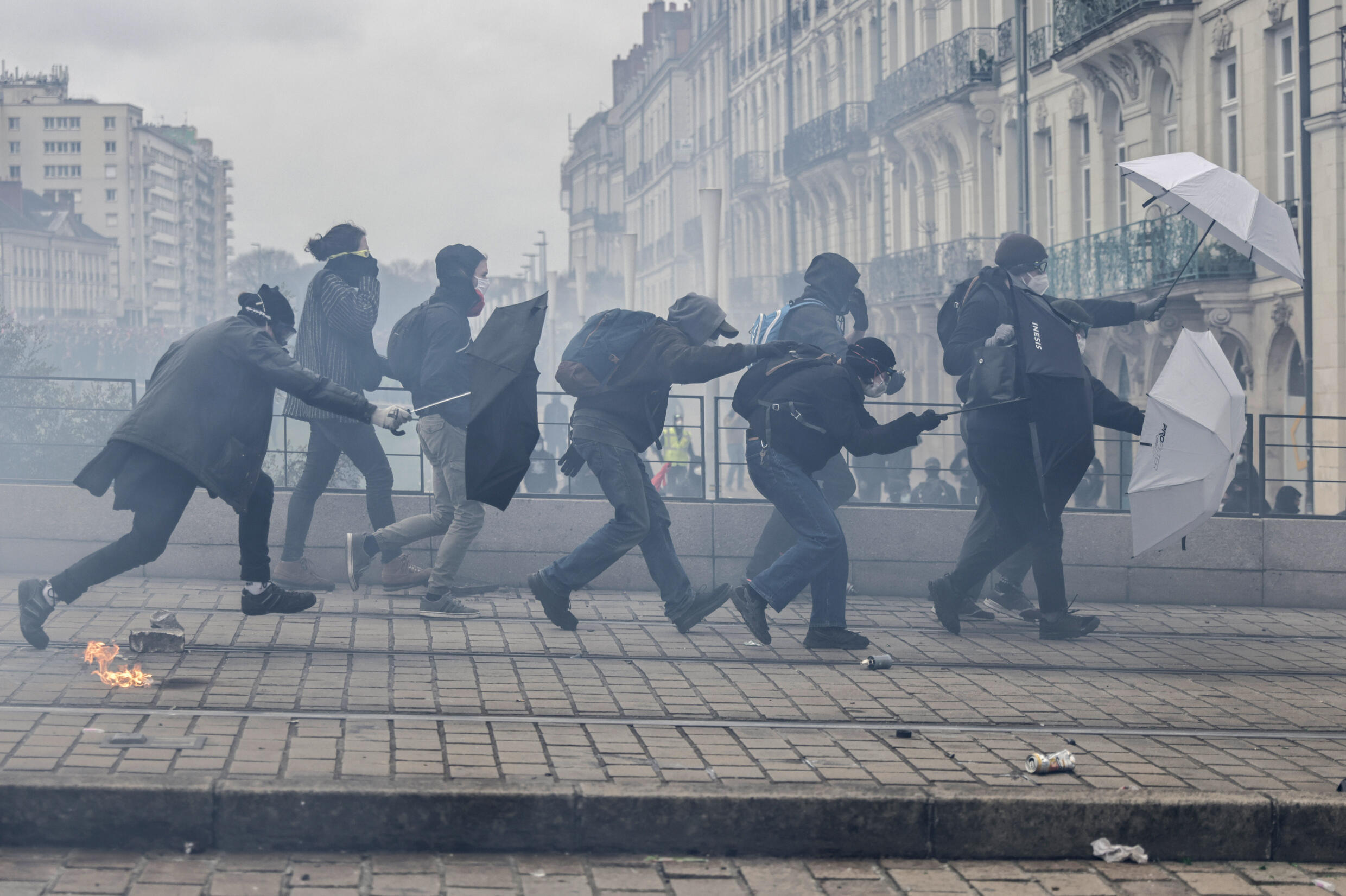First modification:
Annie Ernaux, the 2022 Nobel Prize for Literature, backed calls for a full investigation after four students said they were sexually assaulted by police officers in the western city of Nantes, following a protest against controversial pension reform, pushed by the President Emmanuel Macron.
Ernaux was one of 45 signatories to an open letter expressing outrage over the alleged sexual assault case, which comes amid intense criticism of heavy-handed and police surveillance amid protests against pension reform throughout from the country.
The alleged incident would have taken place on March 14, when a group of students returned from participating in a union demonstration on the city’s ring road.
The students assure that they were surrounded and searched violently by the police who were following them. Subsequently, the four alleged victims, in their 20s, filed a complaint for “sexual violence by a public official,” alleging that they were groped and subjected to degrading and humiliating insults.
For their part, the Police described the accusations as “slander” and pointed to the students’ violent behavior.

Prosecutors ordered the General Inspectorate of the National Police (IGPN) to investigate the accusations, a measure deplored by Ernaux and the other signatories, who indicate that the case should be turned over to a body independent of the police institution.
“There is no place for humiliation and violence against women in the society we want,” wrote the signatories of the open letter, published by the ‘Journal du dimanche’, in which they promised to closely follow the case.
They also asked French and international human rights groups to document the case in Nantes and noted that these organizations have “once again expressed their concern” about the police handling of the protests against the government’s plans to raise the number from 62 to 64. years the minimum retirement age in the country.
“Suppression Strategy”
Two months of massive and peaceful protests have given way to violent clashes since the Macron administration used special executive powers on March 16 to push its unpopular reform through Parliament, sparking a series of riots in Paris and other cities in the nation.
On Friday March 24, the Council of Europe became the latest body to condemn the “excessive use of force” by the French Police against protesters, echoing similar warnings from Amnesty International, the ombudsman of French human rights, Claire Hédon, and even the UN special rapporteur on freedom of association, Clément Voule.
The unrest has reignited a longstanding debate over policing in the country and once again highlights the lack of checks on law enforcement in a country where the minister in charge of policing is commonly known as “the best policeman in France”.
During heated exchanges in the National Assembly last week, opposition lawmaker Andy Kerbrat challenged Interior Minister Gérald Darmanin for failing to address alleged sexual assaults in Nantes.
Kerbrat, a parliamentarian from the Nantes region, accused Darmanin of following a “repression strategy”, calling the minister’s claims that participating in an undeclared protest constitutes “a crime” “false”.
Darmanin did not respond to Kerbrat’s questions, instead stressing the large number of police officers injured in clashes with protesters and praising their courage.
This is not the first time that Ernaux, a fierce critic of Macron and his government, has become involved in the heated debate over pension reform.
Earlier this year, the laureate signed a petition denouncing what she considers a reform that “goes against the history of social progress (…) hits hardest those who work in the most difficult, physically and psychologically demanding jobs.” , and that they are less likely to enjoy a peaceful retirement and imagine a future after age 64.”
This article has been adapted from its original in English.












